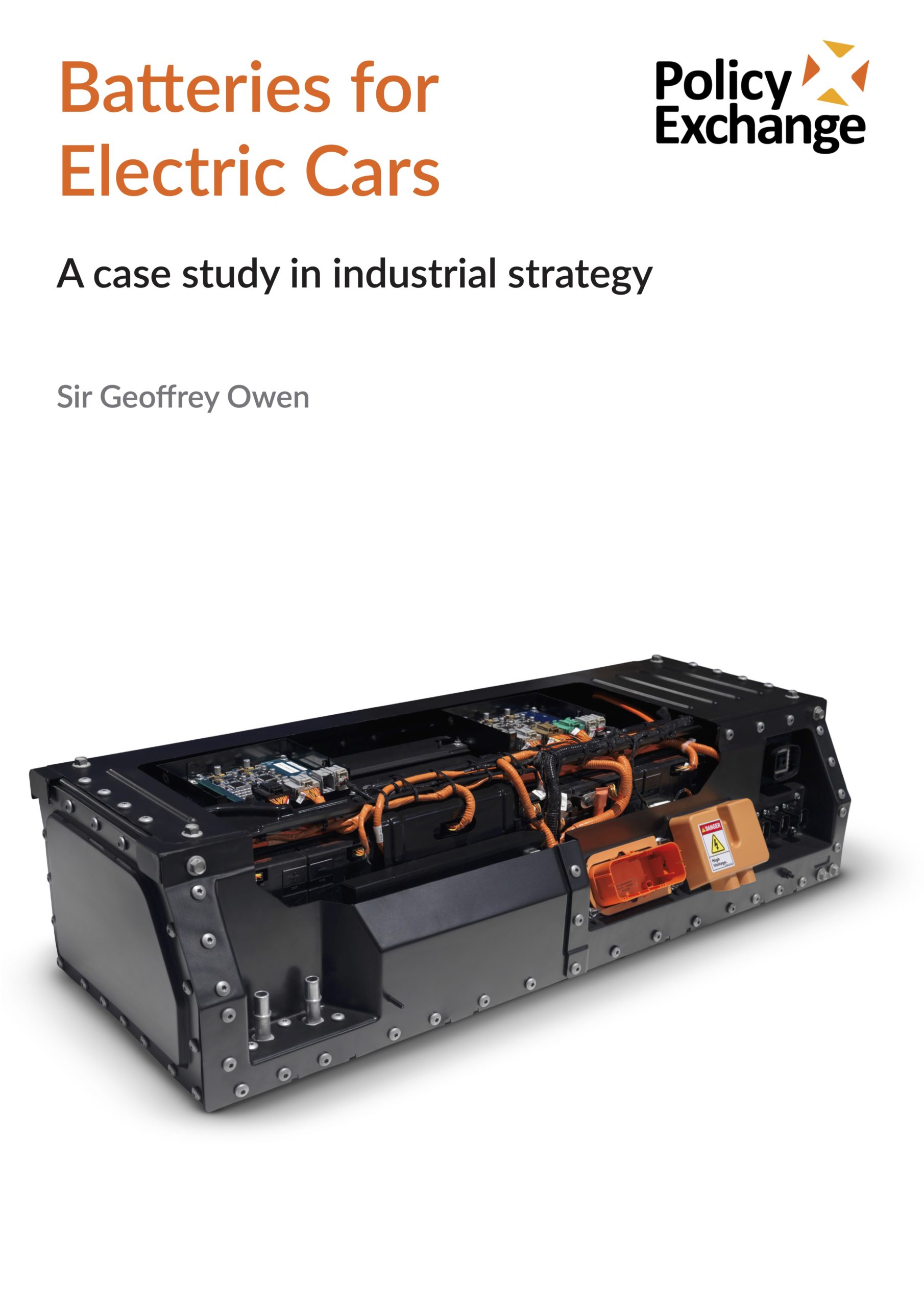Geoffrey Owen
Head of Industrial Policy
Sir Geoffrey Owen is Head of Industrial Policy at Policy Exchange. The larger part of his career has been spent at the Financial Times, where he was Deputy Editor from 1973 to 1980 and Editor from 1981 to 1990. He was knighted in 1989.
Among his other achievements, he is a Visiting Professor of Practice at the LSE, and he is the author of three books – “The rise and fall of great companies: Courtaulds and the reshaping of the man-made fibres industry”, “Industry in the USA” and “From Empire to Europe: the decline and revival of British industry since the second world war.” He is the co-author, with Michael Hopkins, of “Science, the State, and the City: Britain’s struggle to succeed in biotechnology”
Sir Geoffrey Owen — Policy Exchange's Head of Industrial Policy — considers whether 'national champions' are an 'endangered species'.
Download Publication Online Reader A new report launched by Policy Exchange today warns the Government against entering into a subsidy race with other industrial nations – and cautions that the world risks sliding into protectionism. In a comprehensive review of UK Industrial Policy, Sir Geoffrey Owen, former Editor of the Financial Times and Head of Industrial Policy at Policy Exchange, charts the erratic history of British industrial policy – […]
Download Publication Online Reader The UK auto industry is facing a set of problems which could lead to a serious decline in production and employment: it is lagging behind European competitors in managing the transition to electric cars; Brexit has made the UK a less attractive investment location for non-British manufacturers; and there is some uncertainty over the future direction of Jaguar Land Rover, the largest employer among the UK-based […]
Download Publication Online Reader Should the UK have a strategy for semiconductors? This question has come to the fore in response to a series of events – some specific to the UK, others related to global developments – which have moved semiconductors (often referred to as chips or microchips) higher up the political agenda. These include: the current semiconductor shortage, which has severely affected some industries, especially the car makers; […]
Download Publication The purpose of this paper is to examine whether these criticisms of the capitalist system are valid, and whether the proposed reforms are desirable. The paper looks first at the historical background, showing how the doctrine of shareholder primacy came to the fore in the US and the UK in the 1980s and 1990s, and how that doctrine has come to be challenged by supporters of stakeholder capitalism. […]
Lorem ipsum dolor sit amet, consectetur adipiscing elit. Ut elit tellus, luctus nec ullamcorper mattis, pulvinar dapibus leo. Download Publication Online Reader This new paper by Policy Exchange’s Head of Industrial Strategy, Sir Geoffrey Owen, sets out how the U.K. can pursue a new direction in innovation policy. Related Publications
A UK Advanced Research Projects Agency could have a transformative impact on technological innovation in the UK – but the Government must embrace failure if it is to be a success. Learning lessons from the US, ministers must tear up the rule book of research funding bureaucracy and recognise that the majority of projects will not achieve their objectives, but that those that do will be will be transformational. The key to success will be allowing empowered and highly expert project managers to drive forward projects and allocate funding to the best people and projects wherever they can be found.
Can the UK lead the world in the development and production of batteries for electric cars? This is the stated aim of the government’s support programme for the battery sector. Yet, in the light of the current state of the UK battery sector and the strength of international competition, world leadership in car batteries is almost certainly unattainable. If the demand for electric cars grows as fast as many forecasters expect, investment in battery production should be financed by the private sector, argues Sir Geoffrey Owen, Policy Exchange’s Head of Industrial Policy and a former editor of the Financial Times, in a new paper Batteries for Electric Cars: A case study in industrial strategy.
A commentary by Sir Geoffrey Owen, Head of Industrial Policy at Policy Exchange and former Editor of the Financial Times. Sir Geoffrey examines the reasons for US leadership in two key sectors, information technology and biotechnology, highlighting the important role played by new entrepreneurial firms
It has taken a long time, but Dominic Cummings’s vision of a new high-risk, high-return research funding agency, operating outside the established bureaucracy, is finally taking shape. This week’s announcement that Peter Highnam has been appointed chief executive of the Advanced Research and Invention Agency (ARIA) marks an important step forward, all the more so as Highnam seems ideally qualified for the job. Educated in the UK, he has spent […]
“A pudding without a theme” was how Kwasi Kwarteng, Business Secretary, speaking in the House of Commons this week, described Theresa May’s 2017 industrial strategy. He had been asked by Greg Clark, who was in charge of what Mrs May had renamed the Department for Business, Energy and Industrial Strategy (BEIS), why the government had scrapped the strategy. Mr Kwarteng went on to say that the economy was in a […]
Could batteries for electric cars be a successful intervention in industry?











